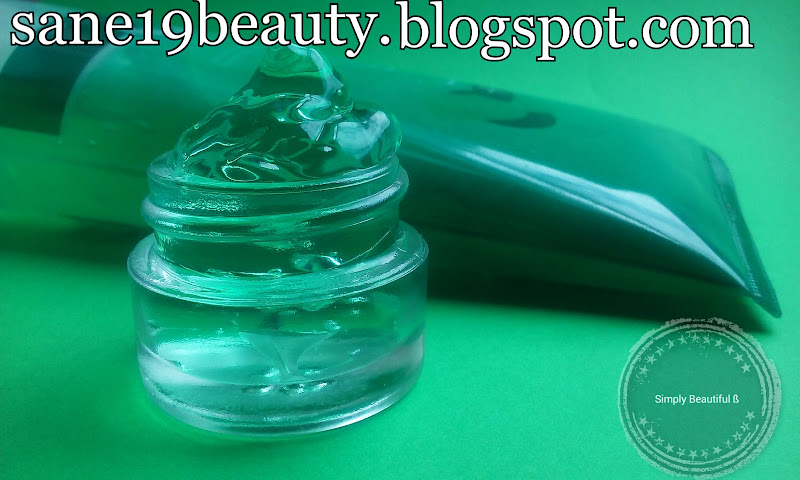What is Retinol? How it works? It's Uses and Side-Effects.
☆☆☆☆☆☆☆☆☆☆☆☆▪︎☆☆☆☆☆☆☆☆☆☆☆
Hello Everyone 👋,
Hope you all are doing well. If not, then just remind yourself it will be ok soon. Keep working on yourself, believe in yourself and don't forget selflove and selfcare. Need more motivation? Then, you can subscribe My YouTube Channel.
You can also follow My Facebook Page and Subscribe it!
Coming back to the blog, Today, I am sharing with you What is Retinol? How it works? It's uses and Side-effects.
So, let's get started....
 |
WHAT IS RETINOL : How It Works? It's Uses And Side-effects
What is Retinol? How it works? It's uses & side-effects.
☆ What Is Retinol ? ☆
Retinol is a form of vitamin A, which is a fat-soluble vitamin that plays a crucial role in various bodily functions, including vision, immune system support, and cell growth and differentiation. It is a key ingredient in many skincare products. In this context of skincare, retinol is popularly used as a topical treatment to improve skin health and address various skin concerns. It is part of the retinoid family, which includes other derivatives like retinoic acid, retinaldehyde, and more. Retinol is primarily used for its beneficial effects on the skin and is known for its anti-aging and acne-fighting properties.
Retinol is Yellow in it's purest form - it cannot be bleached. It is a challenging ingredient to work with in skincare and can quickly lose potency in the formulation process.
You can buy Retinol skincare products online here on Amazon and on Nykaa.
☆ How It Works ? ☆
1). Cell turnover and exfoliation: Retinol stimulates the process of cell turnover, which means it encourages the shedding of old and damaged skin cells from the surface of the skin. This exfoliating effect helps to reveal fresher, younger-looking skin underneath and can improve the appearance of fine lines, wrinkles, and uneven texture.
2). Collagen production: Retinol has been shown to boost collagen production in the skin. Collagen is a protein responsible for maintaining skin's firmness and elasticity. As we age, collagen production naturally decreases, leading to the formation of wrinkles and sagging skin. By stimulating collagen synthesis, retinol can help improve skin elasticity and reduce the signs of aging.
3). Unclogging pores: Retinol can help prevent the clogging of pores, making it beneficial for individuals with acne-prone skin. It works by reducing the stickiness of the cells lining the hair follicles, which helps to prevent the formation of comedones (blackheads and whiteheads) and promotes clearer skin.
4). Skin brightening: Retinol can also help fade areas of hyperpigmentation and sunspots by regulating melanin production. This leads to a more even skin tone and a brighter complexion.
5). Anti-inflammatory properties: Retinol has anti-inflammatory properties that can help calm redness and irritation in the skin, making it useful for those with sensitive or rosacea-prone skin.
It's important to note that retinol can be potent and may cause initial skin irritation, redness, and peeling, especially for those with sensitive skin. Therefore, it is recommended to start with a lower concentration and gradually increase usage as your skin adjusts. Additionally, retinol can increase skin sensitivity to the sun, so it is crucial to apply sunscreen daily to protect the skin from harmful UV rays.
If you are considering incorporating retinol into your skincare routine, it's best to consult a dermatologist or skincare professional to determine the most suitable product and concentration for your skin type and concerns.
☆ Uses Of Retinol ☆ ?
Anti-aging: Retinol is widely used to reduce the appearance of fine lines, wrinkles, and age spots. It does this by stimulating collagen production, which improves skin elasticity and firmness.
Acne treatment: Retinol helps to unclog pores and regulate sebum production, making it an effective treatment for acne and preventing future breakouts.
Hyperpigmentation: Retinol can help fade dark spots and hyperpigmentation caused by sun damage or other factors.
Smoothing texture: By promoting cell turnover and exfoliation, retinol can lead to smoother and more even-textured skin.
☆ Side-effects Of Retinol ☆
Skin irritation: One of the most common side-effects of retinol is skin irritation, including redness, dryness, and peeling. This is especially common when first starting to use retinol, and it may take some time for the skin to acclimate to the treatment.
Sun sensitivity: Retinol can make the skin more sensitive to the sun, so it is crucial to use sunscreen daily when using retinol products to prevent sunburn and further damage.
Dryness and flakiness: Retinol can cause dryness, which can lead to flaky or itchy skin, especially if used excessively or with high concentrations.
Initial breakout: Some individuals may experience an initial breakout when starting retinol, as it can bring underlying acne to the surface before improving it.
Not recommended during pregnancy: Pregnant women are generally advised to avoid retinol and retinoid products due to potential risks to the fetus.
To minimize side-effects, it's essential to start with a lower concentration of retinol and gradually increase usage as your skin gets accustomed to it. Additionally, it's best to consult with a dermatologist before incorporating retinol into your skincare routine, especially if you have sensitive skin or any existing skin conditions. They can guide you on the appropriate product and usage for your specific needs.
You can follow me on Facebook , Instagram , Twitter , Pinterest.
You can subscribe to my Youtube channel.
You can also subscribe my Facebook page.
Follow me at Amazon here: My Amazon Page And Storefront
.png)
.png)



Comments
Post a Comment